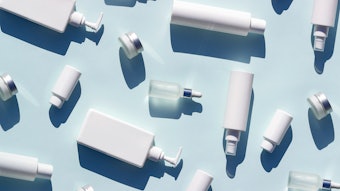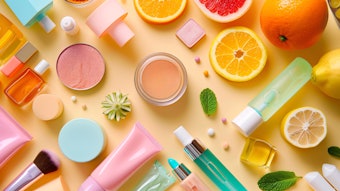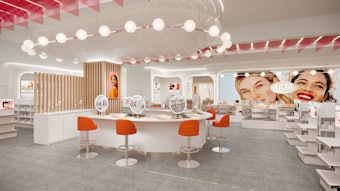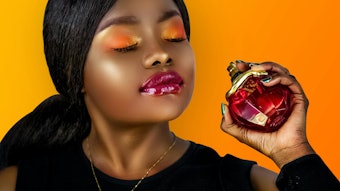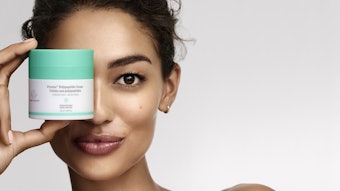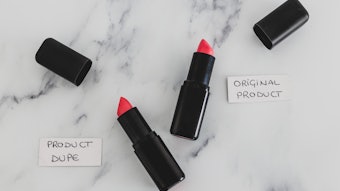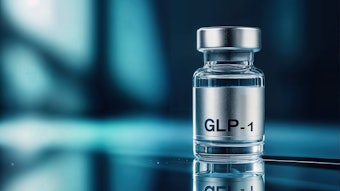Brazilian cosmetic sales rose by 15.62% in 2012, securing the country’s position as the world’s third-largest beauty market, with a 9.6% share of global sales. “Factors that have contributed to the growth of the Brazilian cosmetic market over the last 17 years include the increase in life expectancy, the ever-growing middle class and the modernization of existing [manufacturing facilities], which leads to productivity gains,” says João Carlos Basilio, president of ABIHPEC (Brazilian Association of Cosmetics). He states that the majority of investments in 2012 (R$13.6 billion) went to innovation, R&D and brand development, and that 2012 investments grew 18% over 2011.
Hair care has maintained its place as one of the strongest segments, and Brazil remains second to the U.S. in this segment, with a 12.5% share of the global market. Sales of hair care products reached R$17.5 billion, up 15.3% in relation to 2011. Shampoos hold the highest market share (31.4%), followed by hair treatments (24.7%) and hair coloring (20.9%). According to
Despite the positive scenario, Brazil’s cosmetic exports declined 12.4% January–February 2013 against a 30.8% growth in imports. In 2012, the accumulated deficit was US$195 million. “Brazilian consumers are looking for innovation and value-added products. The domestic industry needs to make an extra effort to compete internationally,” says Basilio.
Unilever Announces R$2 Billion Investment in Marketing
Besides the building of its tenth plant and the opening of its 29th distribution center in Brazil, Unilever has announced it will invest R$2 billion in marketing there, a 10% increase over 2012. The company also plans to continue making significant investments in production.
“Investments of over R$500 million a year are being made to improve production capacity and distribution. Our demand is growing substantially, and it is important to match the volume of production,” says Fernando Fernandez, chairman and CEO of Unilever in Brazil.
With sales of R$13.6 billion, 12.4% higher than 2012, Unilever’s Brazilian operation is second only to the U.S. And according to data from Euromonitor International, Unilever ranks second in the Brazilian cosmetics market with an 11.9% share—market leader Natura’s share is 13.4%.
“The increasing participation of women in the labor market and the country’s huge middle class are increasing Brazil’s share in Unilever’s global sales year after year,” says Fernandez. “The Dove brand, for instance, has annual growth of over 20% in Brazil, while the launch of a new Axe line resulted in a 70% increase in sales in only six months. It was the largest growth ever recorded by Axe worldwide.”
The company also plans to expand its premium lines, a trend that started with the launch of TreSemmé in Brazil, which alone earned Unilever R$350 million in 2012.
Investors Take Over Management of Água de Cheiro
Perfumery retail chain Água de Cheiro has formed an association with Brasil Beauté, a company founded by American and Brazilian investors focused on luxury brands. The new associates will take over management of Água de Cheiro and hold a majority stake in the new venture.
Founded in 1976, Água de Cheiro was acquired by the Globalbras Group in 2009. After a period of strong expansion, the retail chain began to face operational issues and started looking for a new strategic partner. With Brasil Beauté, Água de Cheiro plans to revamp its stores and add new brands to the company’s portfolio. Headquartered in New York, Brasil Beauté was created by former president of Revlon International Paul Block, and counts Renaud Dutreil (ex-LVMH) and Elizabeth Schmalz (ex-Estée Lauder) among its executives.
Benefit Cosmetics Debuts Franchise Operations in Brazil
U.S. brand Benefit Cosmetics announced the expansion of its operations in Brazil through franchising. It is Benefit’s first foray into the franchising arena; all its current operations are based on company-owned boutiques and licensed retail stores. Each franchise store will offer waxing and eyebrow design services in addition to the brand’s cosmetics. The initial franchise fee is estimated at R$800,000.
Benefit Cosmetics CEO Jean-Andre Rougeot was one of the speakers at the 4th International Franchise Management Forum, held in April in São Paulo. According to ABF (Brazilian Franchising Association), the beauty and health franchise segment in Brazil posted sales of R$17 billion in 2012, 21.4% higher than 2011.
Brazil and Mexico Sign Bilateral Agreement
Representatives of the Brazilian and Mexican cosmetic industries have signed a bilateral trade agreement, which seeks to eliminate duties between the two countries for 31 categories of products—including fragrances, makeup, shampoos and deodorants.
The agreement aims to strengthen both the Brazilian and Mexican cosmetics industries and contribute to job creation. The agreement, signed by João Carlos Basilio (ABIHPEC) and Carlos R. Berzunza Sánchez (CANIPEC), updates the 2002 economic agreement between the two countries.
Bourjois and Racco Form Direct Sales Partnership
Brazilian-based Racco has started marketing Bourjois products through direct sales, including a mix of 30 Bourjois products in its catalog to mark the French company’s debut in the direct sales channel. Racco is also responsible for coordinating Bourjois’ distribution strategy through other points of sale in Brazil.
Fernanda Bonifacio is a Brazilian journalist who focuses on the beauty industry, and has been published in the U.S. and Europe. She represented ABIHPEC and its member companies globally from 2002–2008. She has also been a communications consultant for raw material manufacturer Beraca since 2009.
